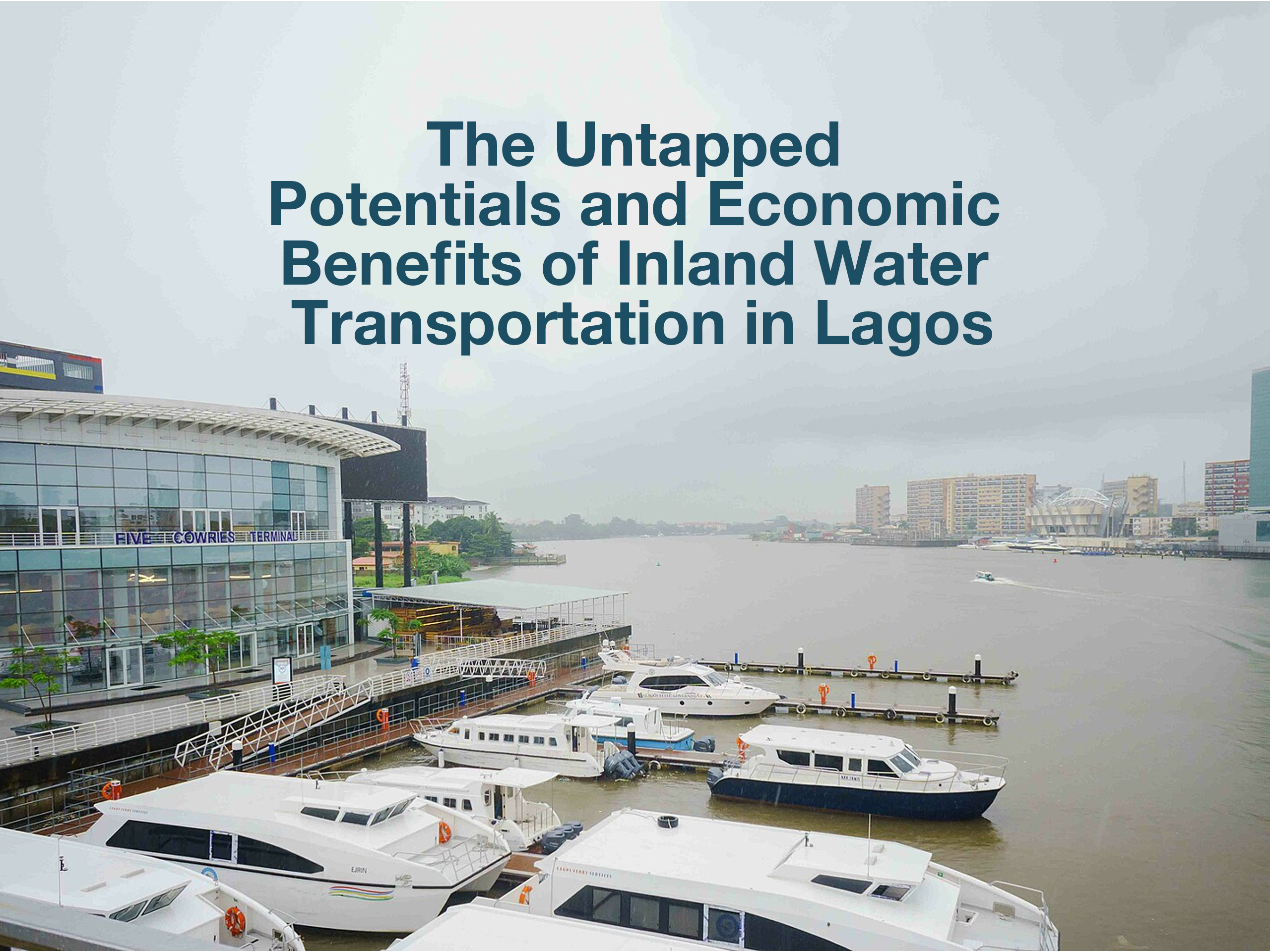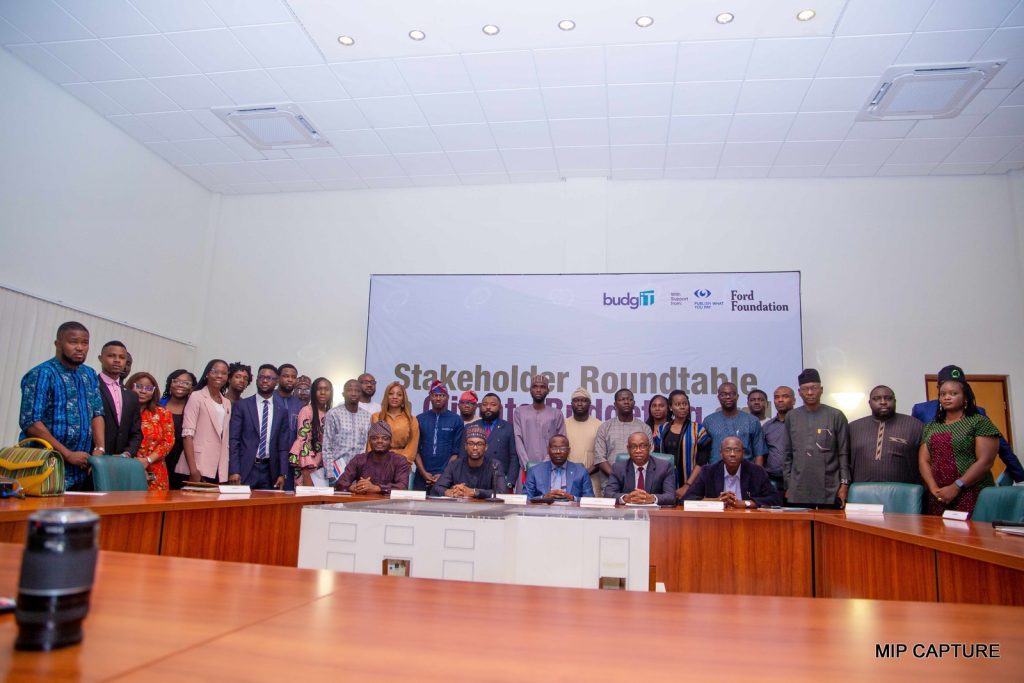The Untapped Potentials and Economic Benefits of Inland Water Transportation in Lagos
Many countries and cities across the world have realized water resources’ potential as a gold mine and are actively leveraging them to stimulate economic growth. Approximately 3,800 of Nigeria’s 10,000 kilometers of navigable waterways are open for use at certain times of the year, according to the National Inland Waterways Authority. The waterway provides access to twenty-eight of Nigeria’s 36 states and fosters vital connections with five neighboring countries, namely, Equatorial Guinea, Cameroon, Chad, Niger Republic, and Benin Republic (Port Novo). More than 80% of global trade is currently carried out by sea, with 90% of imports and exports from Africa occurring via maritime routes. Given this, it is now imperative that Africa, and Nigeria in particular, take full advantage of the opportunities presented by the maritime sector.
Lagos, renowned as the economic focal point of Nigeria and West Africa, is widely acknowledged for its immense yet untapped potential. The state’s water transportation infrastructure is one of these unrealized potentials. With a population of over 20 million, Lagos’ road transport system is merely ineffective and disorganized, resulting in significant productivity losses as residents contend with relentless traffic congestion. It is widely recognized that robust transport infrastructure is one of the main forces behind economic development globally.
The ability to swiftly and affordably transport people and goods between locations is pivotal for fostering economic expansion and inland water transport is the least expensive, environmentally sustainable, and most energy-efficient way to move any kind of freight.
Water serves as an inexpensive and secure means of travel while also playing a vital role in fostering economic advancement, reducing poverty, and providing employment opportunities to young individuals worldwide. Due to the prevalent issue of unaffordable housing in Lagos, the majority of Lagos residents cannot afford to live near their workplaces. Hence, the development of water transportation has significantly boosted economic growth and increased human productivity.
In Lagos, water transport provides a viable alternative to the heavily congested road systems. Commuters in Lagos spend an average of four hours to cover the 61-kilometer journey between Ikorodu and Ajah by road. To put this into perspective, if there was no traffic on the roads, the same distance could be completed in an average of one hour. On the other hand, if you choose the maritime route, it is possible to travel from the Ikorodu ferry terminal to Badore, Ajah, in less than thirty minutes. This indicates that, compared to traveling by sea, Lagosians spend five times as much on the road.
The use of Lagos State’s waterways facilitates the movement of goods, passengers, and services. Lagos, being a coastal city, is strategically poised for the development and efficient use of its water transportation systems. This mode of transportation has the potential to contribute significantly to the economic development of Lagos State in several ways:
- Relief Congestion: Inland water transportation can mitigate road congestion by providing an alternative mode of transportation. This alternative mode not only enhances efficiency but also reduces travel time, thereby fostering economic benefits on a broader scale.
- Cost Efficiency: Water transportation is often more cost-effective than road transportation, particularly for bulky goods and long-distance transport. Utilizing waterways can help reduce transportation costs for businesses, leading to increased trade and economic advancement.
- Job Creation: Developing the inland water transportation sector in Lagos State can spur employment opportunities across sectors, especially in areas like boat operations, boat building, maintenance, and administrative roles. The expansion of this sector could help alleviate unemployment and catalyze stimulating economic activity within the region.
- Accessibility to Remote Areas: Lagos has many remote areas that are inaccessible by road or rail. Inland water transportation provides a means of reaching these areas, facilitating trade, and connecting communities to larger markets. This promotes economic development in previously isolated regions.
- Boost to Agricultural and Industrial Sectors: Inland water transportation can greatly benefit the agricultural sector by enabling the efficient movement of agricultural produce to markets. It also supports the industrial sector through the transportation of raw materials and finished goods.
- Tourism and Recreation: Lagos State is endowed with several water bodies, including lagoons, creeks, and rivers. By promoting inland water transportation and improving waterway infrastructure, the state can attract tourists and leisure seekers, contributing to revenue generation and economic development. Lagos waterways provide potential for tourism and recreational activities such as boat cruises, fishing, and water sporting events. These activities can attract both domestic and international tourists, contributing to the growth of the tourism industry and generating revenue.
- Trade and Commerce: Lagos port complex is one of the busiest and most important ports in Nigeria. Enhancing inland water transportation can facilitate trade by providing efficient connections between the port and hinterland areas. This would strengthen the state’s position as a major trading hub, attract investment, and boost economic activity.
- Environmental Sustainability: Inland water transportation is relatively more environmentally friendly than road transportation, producing a lower carbon footprint and fewer negative environmental impacts. Encouraging the use of waterways can help reduce traffic congestion, air pollution, and the wear and tear on road infrastructure and contribute to a more sustainable and livable Lagos.
Challenges Associated with Inland Water Transportation
It is essential to consider some challenges and factors associated with inland water transportation, some of these challenges are:
- Infrastructure: Adequate infrastructure is crucial for the development of efficient inland water transportation. This encompasses the construction and maintenance of ports, terminals, jetties, and navigational channels. The commitment to investing in infrastructure is necessary to ensure the smooth operation of water transportation networks.
- Connectivity: Efficient connectivity linking waterways and other transportation modes, like roads and railways, is essential for seamless cargo movement. Integrated logistics planning and infrastructure development are necessary to ensure smooth intermodal connectivity.
- Safety and Security: Ensuring the safety and security of water transportation is crucial. It necessitates a multifaceted approach, measures such as proper vessel maintenance, regulation enforcement, and effective security, are necessary to foster trust and reliance in using inland waterways.
- Stakeholders Coordination: Stakeholders coordination and collaboration among government agencies, transport operators, port authorities, and other relevant entities are vital for the successful implementation of inland water transportation systems. Effective coordination can help address regulatory, operational, and logistical challenges.
In conclusion, inland water transportation can be a vital antidote to alleviate gridlock in metropolitan areas such as Lagos and similar congested cities. By providing an alternative mode of transportation, it can enhance efficiency, reduce travel time, and contribute to economic and environmental benefits. However, it requires careful planning, infrastructure development, and stakeholder coordination to ensure its successful implementation.
To fully harness the potential of inland water transportation, the Lagos State government needs to invest in improving waterway infrastructure. This includes dredging and maintaining navigable channels, constructing jetties and terminals, and implementing safety measures. Additionally, collaboration with private sector stakeholders and the provision of supportive policies and incentives would be crucial in attracting investments and stimulating growth in this sector.
Overall, not only does the development of inland water transportation in Lagos State have the potential to boost its economy, create jobs, and reduce congestion, but also aligns with the principles of sustainable development, contributing to a more balanced and environmentally friendly urban infrastructure.



